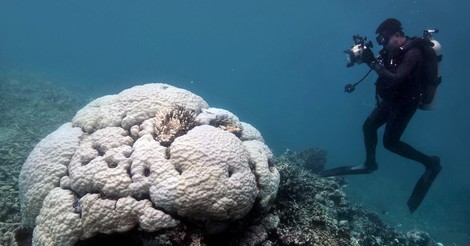Your podcast discovery platform
Curious minds select the most fascinating podcasts from around the world. Discover hand-piqd audio recommendations on your favorite topics.

piqer for: Climate and Environment Global finds Globalization and politics
I'm a freelance journalist, currently based in Madrid. I used to be a News Producer at CNBC in London before, but I thought a little bit more sun might do me good. Now I write for several news organizations, covering a range of topics, from Spanish politics and human rights for Deutsche Welle to climate change for La Marea.
Climate Change Kills Huge Patches Of The Great Barrier Reef
The first time I saw a coral reef, I must confess, I was hugely disappointed. There was I, a newly minted diver, hungry for seaborne adventures. I had travelled tens of thousands of kilometres from Spain to the Gulf of Thailand, for what? A ghostly white mess that looked quite like a cauliflower. Where was the bright red colour?
Later that day, talking to two fellow divers (who happened to be geologists), I learned about coral bleaching. It sunk my heart. It was the first time that I came face to face with climate change, and, like the first time one mourns the death of a loved one, I didn't want to believe it. This was surely something isolated. I could still see coral, elsewhere. Right?
Luckily, I saw majestic coral reefs that same week, a few miles down the coast. Unluckily, it was not something isolated, and since then I've seen many more bleached corals.
Now, the mother of all reefs is dying. Huge patches of the Australian Great Barrier Reef are already white, and soon, other areas will follow. The culprit, as usual, is human-provoked climate change. Of course, coral bleaching is hardly the most dangerous global effect of climate change, but it does play an important role in local economies, with activities from tourism to fishing. And not only that: there's something inherently disgusting in the destruction of beauty.
The authors have made an excellent exercise of science spreading, explaining the bleaching process, and how coral lives and dies, in a way that is fun and moving at the same time (little farmers!). That would be reason enough to recommend the piece. However, for me, it's all in a single quote:
“We didn’t expect to see this level of destruction to the Great Barrier Reef for another 30 years”
Sounds familiar? That's because you see it in every single article you read about climate change. Maybe we shouldn't wait those 30 years to do something radical about it.
